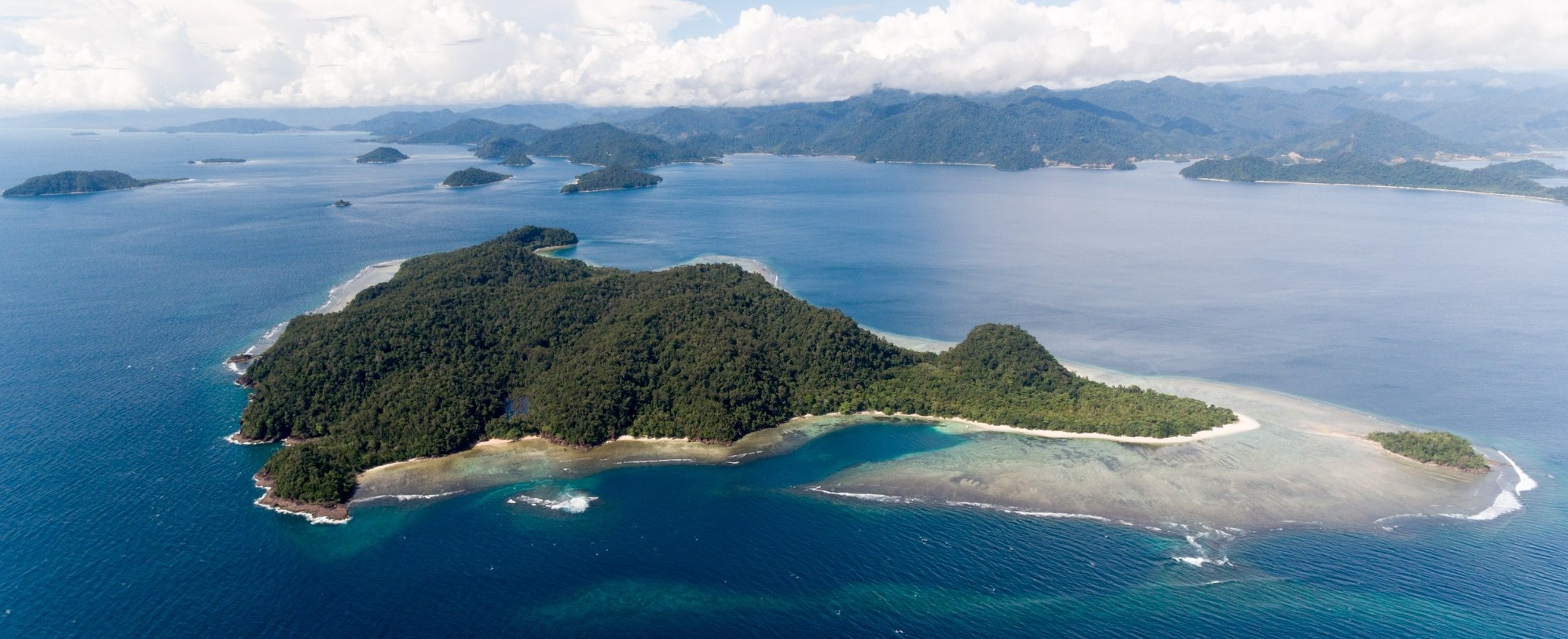PROTECTION OF SEA TURTLES
Protect nesting sites of Hawksbill Turtles and Green Turtles from poaching and unnatural predators
West Sumatra is home to nesting sites for 2 of the 4 species of sea turtles that inhabit Indonesia
The Green Turtle
(Chelonia mydas)
IUCN status : Endangered
The Hawksbill turtle
(Eretmochelys imbricata)
IUCN status : Critically Endangered
From 1950 to 1992, Japan imported 800,000 Hawksbill Turtles from Indonesia including 300,000 adults for their scales and 500,000 babies for the use of their shells in the form of key chains considered to be lucky charms.
The guards, divided into 2 teams of 2 people, are responsible for :

Rimba
Sungai Pinang village
Beach favored by turtles for laying eggs
Annual budget :
TOTAL = 7 300 euros
CONSERVATION OF MARINE HABITAT
Conserve biodiversity sinks through the creation of marine nature reserves and by providing physical protection for these natural areas
Climate change and heavy fishing have led to the rapid decline in fish stocks. It’s also due to the mismanagement and local exploitation of seabeds such as coral reef destruction (dynamite fishing, cyanide…). Indeed, it is estimated that fishing with explosives, a practice only recently abandoned in the region, destroyed about 75% of Indonesian reefs (Source: Reefbase).
Like a vicious circle, the destruction of the seabed at the local level has a strong impact on fishermen’s yields, who will turn to other activities such as logging, poaching or slash-and-burn farming, contributing to the destruction of their forest environment, which will affect rice yields in the near future. All the agricultural and fisheries sectors are therefore threatened in the short and medium term.
Muaro Duo Bay currently has no official status. Nevertheless, with the agreement of the mayors of the 2 closest villages, Rimba currently protects a sea area of 5 hectares! In the end we wish to extend the protected area to 45Ha.
In 7 years of protection, it is already possible to see the difference and notice a clear improvement of the reef in the bay :
Increase in the number of fish species
Increase in the density of individuals per species
Return of reef sharks over the past 4 years
Confirmed presence of 9 resident turtles against 2 turtles 7 years ago
Presence of dozens of lobsters when they had disappeared from the bay
Presence of many new coral shoots

 Zeuxidia aurelius aurelius (female)
Zeuxidia aurelius aurelius (female)